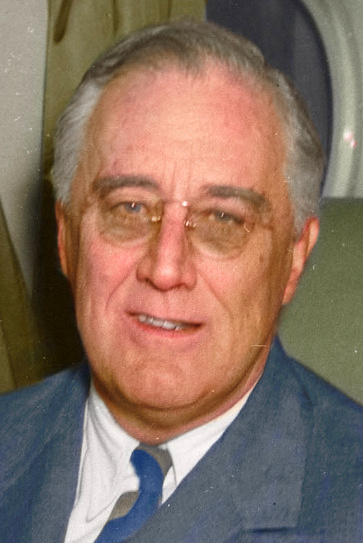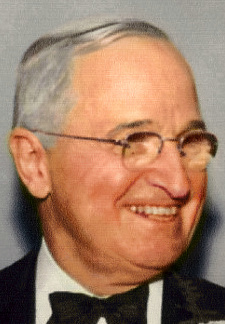
South’s revolt given new life by convention
All-out drive mapped to avert fourth term
By Marshall McNeil, Scripps-Howard staff writer
Chicago, Illinois –
This one-man Democratic convention has given enthusiastic new life to the Southern revolt which can now conceivably result in the defeat of President Roosevelt in November.
It has refused the demands of Texas’ Regular Democrats.
As a result, the Democratic presidential electors of Texas are instructed to vote against the President in the Electoral College.
If the election is close enough, Texas’ 23 electoral votes – to say nothing of the possibility of nearly as many more from other Southern states – may hold the balance of power and throw the election to the House of Representatives.
Looking toward that end, Southern Democrats who detest the fourth term were to begin laying their plans here today.
Their nucleus is the Texas group, which was so incensed in the convention’s decision to seat their pro-Roosevelt opponents that they walked out of the stadium in disgust.
All-Southern convention
Around this group, now prepared to go home and fight throughout the state against the reelection of the New Deal, an all-Southern convention will be called within a few weeks, perhaps at Shreveport, Louisiana.
That convention will nominate its own presidential ticket, headed perhaps by Senator Harry Byrd (D-VA).
The large majority of the Texas “free” electors, if elected in November, will cast their votes for the Byrd ticket.
This, at least, is the plan which anti-fourth-term Democrats – among them E. B. Germany of Dallas and former Mississippi Governor Mike Connor – were scheduled to discuss today.
They’re determined people
These anti-Roosevelt Democrats of Texas and the South are determined people. In the face of the convention’s action, they have dispelled the feeling, current before this meeting began, that the Southern revolt might peter out.
One reason it didn’t was the inept handling of the convention’s Credentials Committee by Senator Abe Murdoch (D-UT).
It was his job to lead his colleagues toward a decision on whether to seat the Texas Regulars or the Texas rump delegates. Obviously, national party leaders here wanted the Regulars seated, for they knew the danger of adding to the discontent in Texas.
Senator Murdock chose to compromise by voting to seat both delegations, dividing Texas’ 48 votes between them.
Tempted to march out
The Regulars came here backed by their convention’s pledge that if any rump delegates were seated, their (the Regulars’) presidential electors would not support the nominee of this convention.
At the convention hall, the Texas Regulars, learning of the decision, were tempted to march out of the hall at once, but at the insistence of state chairman George Butler of Houston, they decided to act in an orderly way.
Texans cry ‘insult’
How the national party leaders felt about the situation was shown when Chairman Bob Hannegan sent word through Ed Pauley of California that “he hoped no matter how your deliberations end, that your conduct on the floor will be orderly.”
“Insult!”, several Texans cried. Mr. Pauley said he meant no insult.
Finally, the decision was reached: If the convention upheld the Murdock Credentials Committee report, each Regular Texan could decide individually whether to stay in the convention – or leave.
Boos and applause
The issue was taken to the platform. Hart Willis of Texas appealed to the delegation to seed the Regulars from their own legal convention in Texas. He told what seating of the rump delegates would mean in freeing Texas electors from voting for FDR. There were boos and applause.
The convention voted to approve the seating of both delegations – and the Texas Regulars, with very few exceptions, walked out.
Later, the joint Regular and rump delegation cast 36 votes for Roosevelt and 12 for Byrd.

